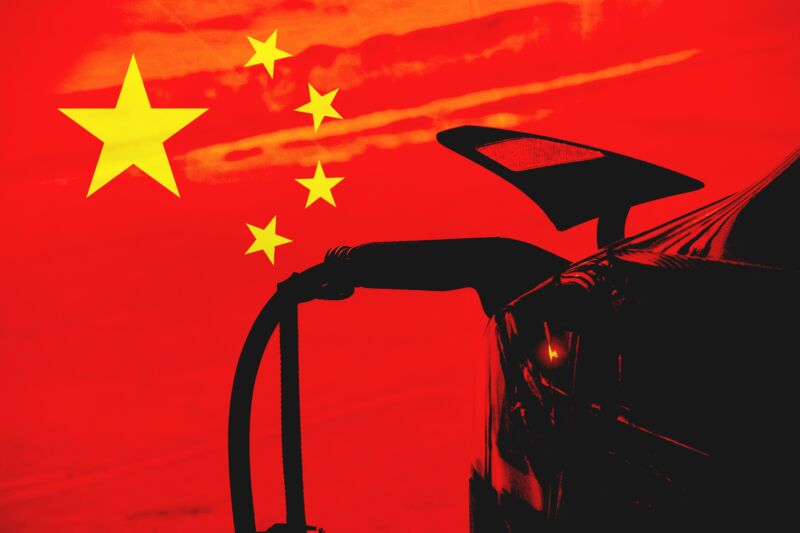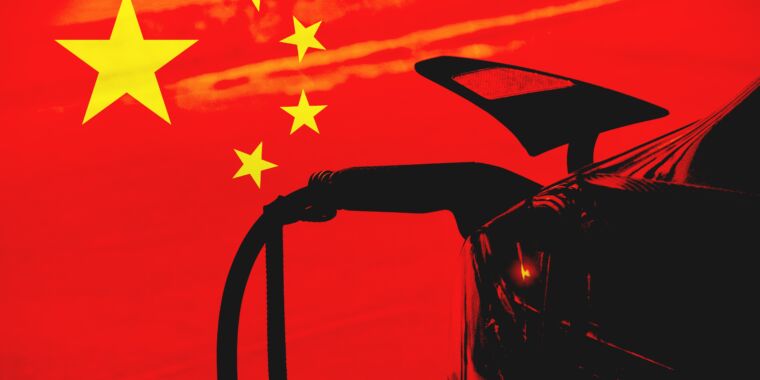
Getty Images
The US government is readying its latest measure to defend local automotive manufacturing. In May, US President Joe Biden levied new 100 percent tariffs targeted at specific Chinese automakers. Now, the US Commerce Department is set to enact a de facto ban on most Chinese vehicles, by prohibiting Chinese connected car software and hardware from operating on US roads, according to Reuters.
The rationale? National security concerns. “When foreign adversaries build software to make a vehicle [connected], that means it can be used for surveillance, can be remotely controlled, which threatens the privacy and safety of Americans on the road,” said Commerce Secretary Gina Raimondo.
“In an extreme situation, a foreign adversary could shut down or take control of all their vehicles operating in the United States all at the same time, causing crashes, blocking roads,” said Secretary Raimondo, a scenario we saw depicted in Fate of the Furious (where it caused me a headache), as well as more recently (and to better effect) in Leave the World Behind.
Hollywood aside, the idea that a connected car is a security risk is not something the US government has manufactured out of whole cloth. In fact, in 2021, China banned Tesla vehicles from its military bases and other state-controlled facilities after Chinese officials raised concerns about the rampant data collection abilities of the camera-studded Teslas.
Those fears were probably reasonable: it later emerged that for several years Tesla employees regularly shared with each other “sometimes highly invasive videos and images,” captured by customer cars, over the company’s messaging system.
And it’s not like domestic automakers have been exactly well-behaved when it comes to using data from their connected cars. Earlier this year, General Motors was busted for selling user data from its OnStar services to data brokers that, in turn, provided it to insurance companies, causing drivers’ insurance rates to soar. GM has since pledged not to provide customer data to brokers in this manner.
Unfair competition
Although national security concerns were cited by the Commerce Department in this case, this move should be seen in the context of a wider effort to slow or stop the arrival of heavily subsidized Chinese vehicles into the US. The Chinese government has been subsidizing its automakers with billions of dollars a year in direct contributions so those companies can sell their cars abroad at rock-bottom prices.
Members of Congress on both sides of the aisle have called for a ban on Chinese electric vehicles, and the US government pressured Mexico to not incentivize Chinese automakers looking to set up factories there.
“China is flooding global markets with a wave of auto exports at a time when they are experiencing overcapacity. We have seen this playbook before in the China shock of the early 2000s that harmed our manufacturing communities,” said White House economic adviser Lael Brainard.
A total ban?
Since virtually every new car manufactured today has some degree of connectivity, this new Commerce Department proposal would, in effect, ban all Chinese vehicles from sale in the US, although Chinese automakers will be able to apply for exemptions. The ban would not come into effect until model-year 2027 (so calendar year 2026) for software, and model-year 2030 for hardware.
However, the global nature of supply chains means that it’s possible that some other OEMs will also need to react. “There’s actually very little technology—hardware or software—in today’s connected vehicle supply chain that enters the US from China. But this rule will require auto manufacturers in some cases to find alternate suppliers,” said John Bozzella, president and CEO of the Alliance for Automotive Innovation.
“I’ve said this in other contexts, but it applies here, too: You can’t just flip a switch and change the world’s most complex supply chain overnight. It takes time. The lead time included in the proposed rule will allow some auto manufacturers to make the required transition but may be too short for others, Bozzella said.

